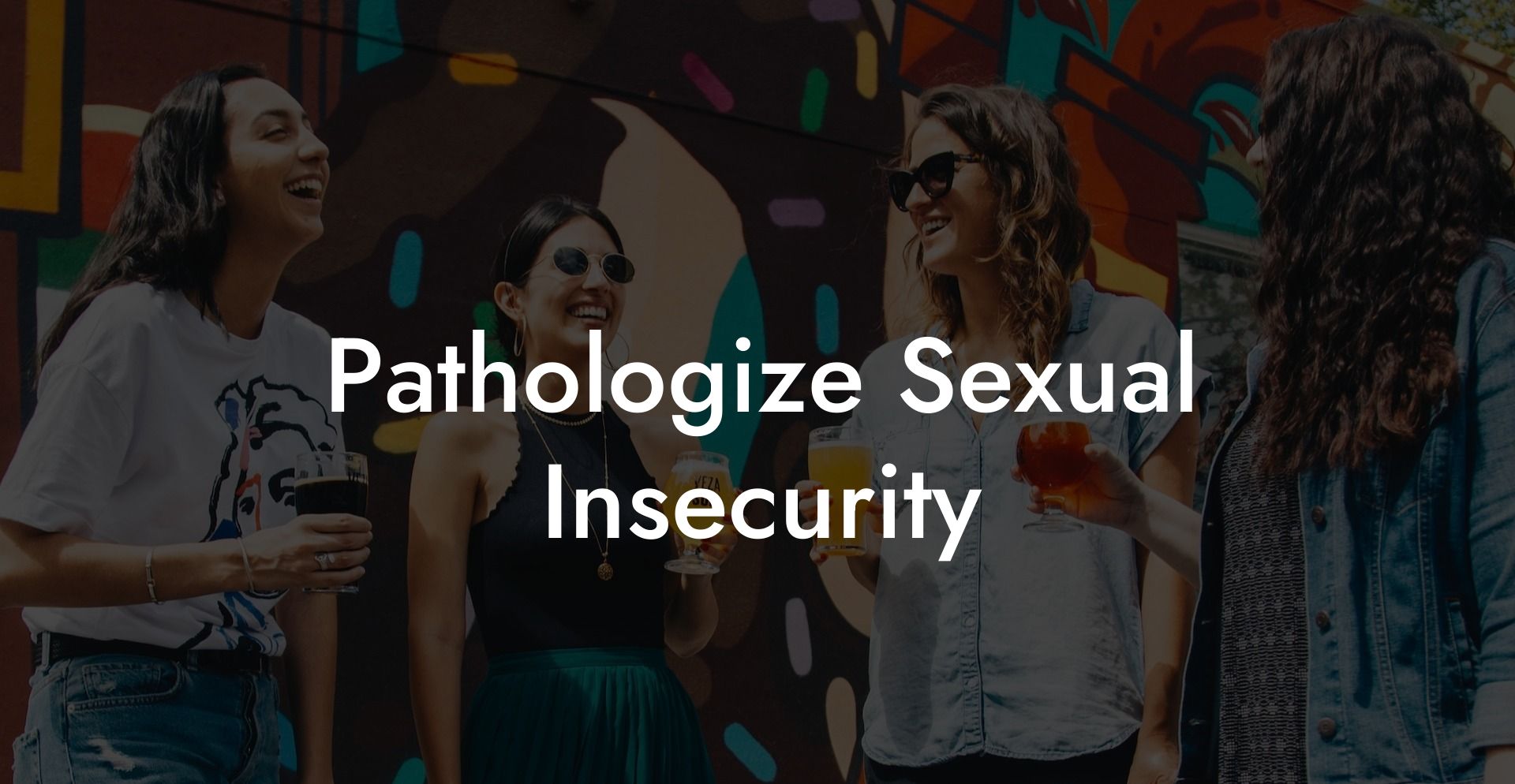In a society that often praises monogamy and views other relationship structures as less valid, it's common to see individuals grappling with insecurities around their own sexual choices and desires. Let's discuss how to recognize and confront sexual insecurity and the importance of taking a closer look at the social structures that contribute to it.
Pathologize Sexual Insecurity Table of Contents
Identifying Sexual Insecurity
Sexual insecurity can manifest in various ways, whether it's anxiety around one's desirability, feeling threatened by a partner's sexual past, or even feeling inadequate due to the relationship choices of those around you. It's essential to recognize these insecurities and understand where they stem from.
The Influence of Social Constructs on Our Insecurities
Society's expectations and stigmatization around relationships and sexuality play a significant role in shaping our insecurities. The following factors could contribute to your feelings of insecurity:
- Societal pressure to conform: There's often pressure to fit into a particular mold when it comes to relationships, and stepping outside the norm can trigger feelings of inadequacy or fear of judgment.
- Stereotypes and stigmas: Polyamory, open relationships, and other forms of non-monogamy may be perceived negatively, contributing to feelings of guilt or shame.
- Insecurities stemming from past experiences: Past trauma, judgement, or negative experiences can influence our self-confidence and the way we perceive our sexual choices.
Developing Healthy Attitudes Towards Sexuality
Developing a healthy attitude towards sexuality can help reduce sexual insecurity. Consider the following strategies:
- Self-exploration and reflection: Understanding your desires and relationship preferences is critical for building confidence and reducing insecurities.
- Seeking support and understanding: Having meaningful conversations with trusted friends, partners, or relationship experts can minimize feelings of insecurity.
- Challenging societal expectations: Observe how societal norms around relationships might be affecting your insecurities and strive to challenge them.
- Practicing self-compassion: Treat yourself with kindness and acknowledge that it's okay to feel insecure and uncertain sometimes.
Pathologizing Sexual Insecurity
To pathologize sexual insecurity, the following steps can help:
- Acknowledge that your insecurities are valid: Recognize that feeling insecure is a normal human emotion and that everyone experiences it at some point in their lives.
- Unpack your insecurities: Identify the root causes of your insecurity, and think about how they might be influencing your relationships and desires.
- Seek professional help, if necessary: A therapist or counselor specializing in relationships and sexuality can provide valuable insights and support.
- Find your community: Surround yourself with people who understand and support your relationship choices to help enforce positive feelings about your sexuality.
Pathologize Sexual Insecurity Example:
Jane is in a non-monogamous relationship and feels sexually insecure because she believes her friends and family judge her choices. By pathologizing her insecurities, Jane recognizes that her feelings stem from societal expectations, which has led her to question her desires. Jane decides to discuss her feelings with her partner and a therapist to better understand her emotions and learn how to handle them.
Sexual insecurity is a common issue that many individuals face, whether they are in monogamous or non-monogamous relationships. By understanding the roots of our insecurities and challenging societal norms, we can embrace our desires and develop a healthier attitude towards our own sexuality and the choices of others. Share your experiences and insights with others; understanding and communication are crucial steps when facing sexual insecurities and creating a society that celebrates all forms of relationship structures.













